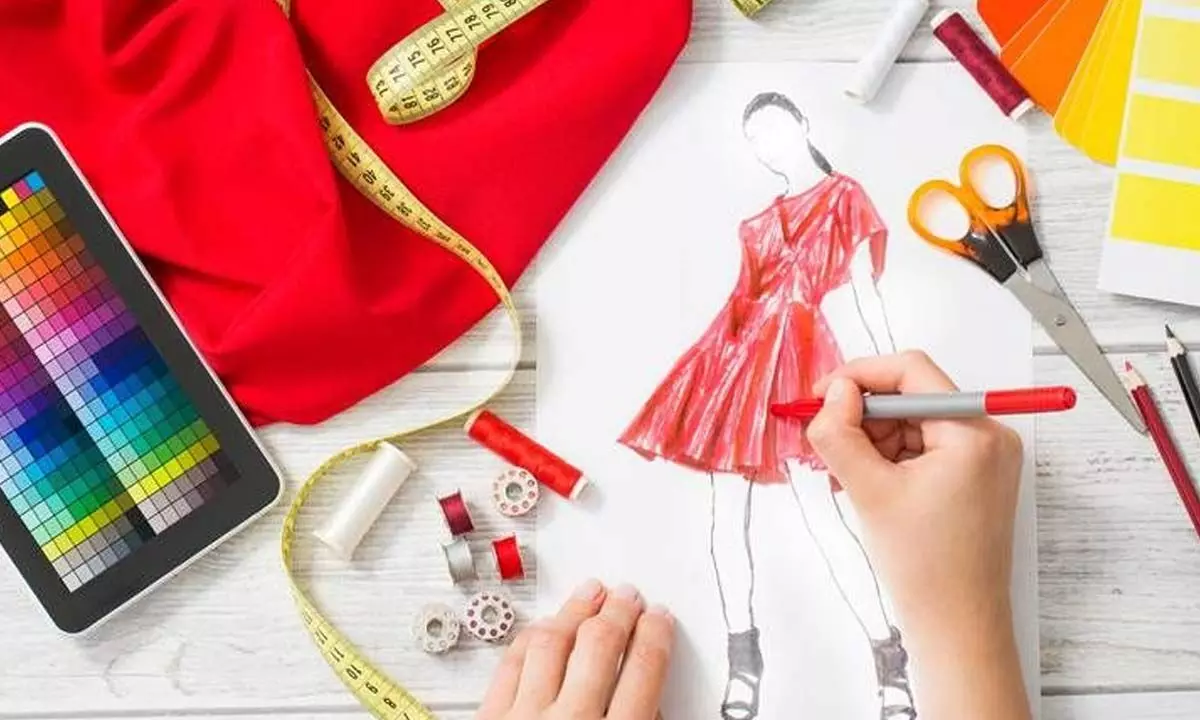Live
- Varun Sandesh comes with a concept-based film ‘Nindha’
- Priyadarshi’s rom-com with Nabha Natesh titled ‘Darling’
- Vedhika captivates in a mesmerising Blue lehenga
- Director Tharun Bhascker ventures into lead role opposite Eesha Rebba
- Scary first look of Sunny Leone’s ‘Mandira’ unveiled
- Nara Rohith’s ‘Prathinidhi 2’ trailer promises gripping political drama
- Revere farmers who grow our food: Zoho's Sridhar Vembu
- Former Minister Ponguru Narayana Promises Development for Nellore City
- Mekapati Vikram Reddy welcomes TDP, BJP, and Janasena leaders into YSRCP fold
- Protesters lay siege to K’taka HM’s residence demanding punishment for MCA student’s killer
Just In
Foundation courses in design schools can help students be future-ready?


Foundation courses in design schools can help students be future-ready?
Students gain more confidence in knowing who they individually are, and are able to make an informed decision about which direction to take. This kind of methodology further enables them to use it in any future decision making – large or small, personal or professional, and be ready equally for their careers as well as life.
While the landscape of Design Education in India is rapidly changing with an increased number of design institutions, students completing their schooling are not aware of the variety of design streams or careers, nor in majority of cases, have the opportunity to experience first-hand what it means to design, even less so what does it mean to engage in a specific process of design in a stream such as Communication Design vs Fashion Design, or Product Design vs Interior Design, or any other stream of Design.
The good news, however, is that design thinking as an optional subject has been implemented in curriculums of some private schools in the country, while many schools are expected to implement it from this year in CBSE and other boards, thanks to the National Education Policy brought in 2020.
Similarly, it is expected in the near future that Design as a subject will be implemented even from Class 6 onwards, and it would focus on teaching certain design skills, and therefore re-focus school education in India from almost exclusively science and commerce orientation and preference, to a broader spectrum where design as a creative stream, along with Arts and Humanities, would be equally a preferred choice.
Needless to say, this is also a slow cultural change involving parents as active decision makers, but as students are much more informed today than even just 5 years ago, the decision making has become a joint one, with an active support from parents, for students to channelise their creative talents and ambitions to pursue higher education and a career in Design.
Until the entire school system of the country implements Design as a regularly offered subject, helping a student to make an informed decision about which design stream or specialisation to pursue, will remain a responsibility of a quality design school.
The student is, in majority of cases, able to display his/her raw creative talent and passion for creative expression and problem solving, and very often by their sheer passion and determination, pursue learning new techniques and technologies that grow these talents and skills. They are however in need of guidance and immersive learning experiences, to provide them with a clear direction.
The opportunity to experience a design process, and accordingly enable an informed individual choice by the student still remains as a mandate of a good design school, which provides an immersive and hands-on learning experience via its foundation year.
Most design schools provide a foundation year where students learn the fundamental elements and principles of design, it is still left to marks and student's choice to make this decision. A good design school, however, makes it a point to provide more than that, by mentoring the student beyond this and it has mechanisms and the right kind of mentors to provide conceptual tools to a student to learn about himself and identify his individual strengths, skills and talents, and direct them in an optimal future choice of path. On top of that, an exposure to specific design processes involves learning new skills and technologies pertinent to different design streams that enables them to have a first-hand learning experience about these design streams.
In other words, students with individual guidance by faculty should be able to individually assess their talents, strengths, and ambitions, and reflect on the learning experience through assessing their own learning experience, not just the outcome which is evaluated. – This way, students gain more confidence in knowing who they individually are, and are able to make an informed decision about which direction to take. This kind of methodology further enables them to use it in any future decision making – large or small, personal or professional, and be ready equally for their careers as well as life.
(The author is the Director at CMRU School of Design)

© 2024 Hyderabad Media House Limited/The Hans India. All rights reserved. Powered by hocalwire.com






